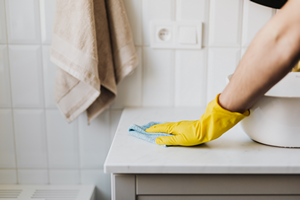Natural Oven Cleaning Products
Natural oven cleaning is a great way to improve the look and the health of your home. When you’re ready to do a thorough cleaning of the oven, there are many different options available to you. And, while most of them cost less than professional services, they can be just as, if not more, effective. The trick is knowing what you should be using and knowing which tips to save money on. So, let’s take a look at the different kinds of natural cleaners that can be used to make your life simpler.
Homemade cleaners are the perfect solution for busy people who don’t have time to spend hours in the kitchen scrubbing and spraying chemicals all over the oven door and windows. Whether you’re using lemon juice or ammonia based cleaners, it is important to clean the area thoroughly and wipe away excess chemicals before moving on to the next step. You may also need to use a damp sponge or a sponge with a moist newspaper towel underneath to soak up any drips or spills. If you’re reusing the same baking soda and baking powder recipe that you used for the original cleaning, then simply repeat the steps above.
One of the simplest, yet most effective, ways to clean your racks is to mix water and vinegar together to form a paste. Rubbing the paste into the racks will loosen built up grease, and, if left in place, will leave the baking soda with a sticky residue. Wiping the vinegar off of the racks will remove that sticky film, but will leave the residue of grease and baking soda. If you’re reusing the same recipe, simply add water to the same proportions as before and you’ll have yourself a quick clean without the hassle of scrubbing.
The second option is to make your own natural cleaning products. For one, this will save you money since you won’t be paying to replace chemicals or ingredients. For another, making your own products allows you greater control over the exact chemical balances that you want. There are a few different products that you can make with baking soda and hydrogen peroxide. The most popular variety of these are deodorant and soap additives.
Another option is to use a small scrubbing pad. Mixing equal parts of hot water and vinegar or ammonia will effectively do the job of both a sponge and a cleaner. If you decide to use a scrubbing pad instead of a kitchen sponge, be sure not to use too much pressure when scrubbing. A good rule of thumb is to apply about twice as much pressure as that of what you would apply to a standard sponge.
Another simple tip is to always pre-heat the oven racks before beginning your cleaning routine. This helps eliminate some of the risk of injury from burning, as well as premature damage. Another benefit of pre-heating is providing an even deeper clean, which is harder to do if cleaning dirt particles have been sitting on top of the racks for any length of time. You may also choose to pre-heat the racks before you begin. Another benefit of pre-heating racks is that they make it easier to remove dirt from deeper areas that you may have otherwise not been able to reach. If you are in a hurry, it is a good idea to pre-heat the racks and clean in this manner before proceeding with the actual cleaning chores.
The scrubbing pad is a great way to clean oven racks, especially if you find that your children or pets will get onto them. Just be sure to only use a small amount of the pads when you are cleaning the racks. After you have used the scrubbing pad, replace it with a clean sponge and start the process over. This process should be repeated several times until all of the grime has been removed.
Other natural cleaning products that you can use for oven cleaning are baking soda, white vinegar, and hot water. Again, be careful to only use a small amount of each. Before scrubbing, remove any items that could interfere with the process (such as foil, plastic wrap, etc). Rinse all of the areas thoroughly and allow the baking soda and white vinegar to sit for about an hour before scrubbing. The vinegar will work to pull out stubborn stains from the rack while the baking soda will help to pull out lint and grease that have accumulated throughout the years. Finally, use hot water to rinse off the baking soda and allow it to completely dry before replacing it.



